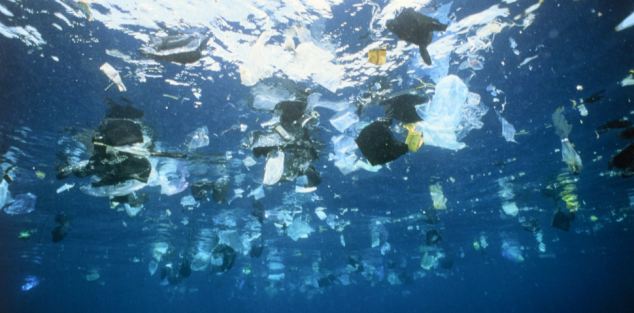By Judie Rimer, Year 12
Human beings by nature are selfish creatures; we mostly act when something directly affects us and rarely do things purely for the “good” of mankind. This could be one more article about how our carelessness is killing thousands of species and ruining our beautiful, complex and delicate ecosystems. Would that really make you change your ways? I doubt it, because as I have pointed out, we tend to act only when something threatens us directly or offers us an immediate gain. But what if I were to tell you that plastic pollution directly threatens all of us?
It is no secret that for several decades, we have slowly been ruining our ecosystems. Like many things on this earth there is a very clear cycle to our problem:1. we use plastic; 2. we throw it away rather than recycle it; 3. vast amounts of plastic end up in our oceans; 4. the fish eat it, starve or suffocate; 5. fish populations decline. But the cycle doesn’t stop there. Every single fish that we have eaten during the last 10 years has been contaminated by our own plastic waste.
Fish react in different ways when they ingest plastic. Some fish eat larger pieces or get tangled up in them, choke and die. Other fish consume massive amounts of microscopic plastic particles which they mistake for plankton. This fills their stomach and makes them feel full, but they receive no nutrients from the fake food and starve to death. Still others somehow survive while eating micro-plastic, swimming around the waters waiting to be captured by fisherman, until they are ultimately ingested by us.
Not enough research has yet been done to completely explain how our indirect ingestion of plastic affects us, but like second-hand smoking, these things are only proven once half the population ends up sick. But it should be common sense that this will not end well. Plastic is made of chemicals from petroleum, and these chemicals should not end up in any type of living organisms.
If the thought of eating poisoned fish doesn’t scare you, think of the “pleasure” side. Think of those vacations you take, when you jump into the deep blue sea and observe the beautiful fish that surround you– that is, if you are lucky enough to see any. We are already seeing much less sea life than people were seeing just ten years ago, but at least we are still seeing something. Now ask yourself, if things continue on the current path, in 5 years or even worse, in 15 years when you have kids of your own, will they even know what underwater life looks like? Perhaps they’ll dive into the same ocean observing nothing but their sad bubbles.
I want to raise awareness of the plastic problem because it can still be solved. We can conserve our ecosystems and even slowly repopulate them with species that are declining. But this will never happen unless we all make a change. We can all start in a very simple way:
- Let’s stop buying disposable plastic bottles of water. Buy a high quality re-usable water bottle and refill it whenever you want. Remember, we live in Geneva, our tap water is basically Evian.
- Let’s also stop using plastic bags for our groceries, and put them into non-disposable bags.
- Let’s all, try to minimise our use of disposable plastic and if we ever do need to use dispose of something made of plastic, let’s make sure we recycle it.
We are lucky enough to be able to afford better and more sustainable materials to satisfy all our basic needs. Plastic is an incredible invention and is indispensable for many things but it’s use come with an ecological cost. We should keep this cost in mind and use plastic responsibly.
Join me in starting a movement in our small community. If you have any ideas on how we can kick start this change
Lets not be blind to the problem that our plastic waste has created, and buy ourselves a pair of green-tinted glasses to help us view the world in a better way.



